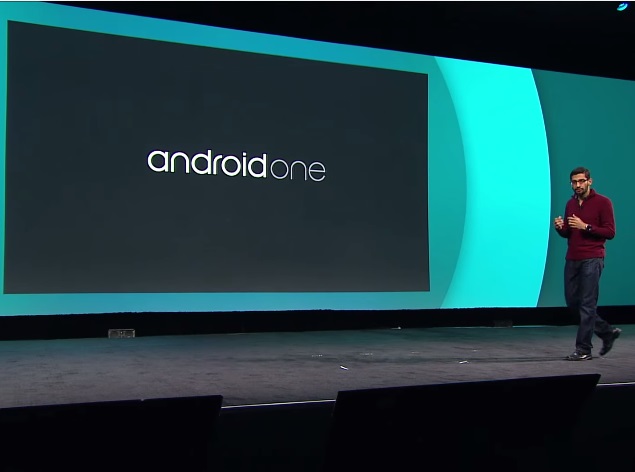- Home
- Mobiles
- Mobiles News
- Android One in Mind, Google Encourage Developers to Optimise Apps for the Next 5 Billion
Android One in Mind, Google Encourage Developers to Optimise Apps for the Next 5 Billion

(Also see: Flipkart, Snapdeal and Amazon in Battle for Indian Android One Market)
"These days, we often talk about smooth, 60fps transitions and keeping apps jank-free, and rightly so - performance is a critical metric for app quality," Developer Advocate Rich Hyndman writes on the Android Developers Blog. "But in the user experience hierarchy of needs, an app should first and foremost do its job reliably and consistently."
Hyndman then takes an example of how an app with search functionality could adapt to poor connectivity conditions, a scenario that's especially pertinent to emerging markets where the Android One phones are expected to make a mark.
(Also see: Android One Smartphones Sales Could Touch 2 Million in 2014: MediaTek)
"If you're trying to build a robust app to reach the next five billion, it might be less about returning a result immediately, and more about returning a result at all," Hyndman writes. "To address this challenge, why not include an option to users to 'notify me with the results' when a search query is running on a slow network? Your app can then take as long as it needs to successfully retrieve the data in the background and show a notification when complete."
Hyndman points developers to tools like the Android Emulator that they can use to simulate various network speed and network delay conditions and test their apps under varying conditions.
Apart from poor connectivity, another common factor on the low-cost Android One smartphones is likely to be limited RAM availability. Hyndman points developers to tools in the Android SDK they can use to check and optimise their apps' memory usage.
Finally, with battery usage becoming a key focus with Android L and Project Volta, the post encourages users to pay attention to the power requirements of their apps.
"By ensuring your app works well on slower networks, uses minimal memory, minimises battery usage and doesn't have a larger-than-necessary APK, you will help the next five billion discover, use and love your app," Hyndman concludes.
For the latest tech news and reviews, follow Gadgets 360 on X, Facebook, WhatsApp, Threads and Google News. For the latest videos on gadgets and tech, subscribe to our YouTube channel. If you want to know everything about top influencers, follow our in-house Who'sThat360 on Instagram and YouTube.
Related Stories
- Samsung Galaxy Unpacked 2025
- ChatGPT
- Redmi Note 14 Pro+
- iPhone 16
- Apple Vision Pro
- Oneplus 12
- OnePlus Nord CE 3 Lite 5G
- iPhone 13
- Xiaomi 14 Pro
- Oppo Find N3
- Tecno Spark Go (2023)
- Realme V30
- Best Phones Under 25000
- Samsung Galaxy S24 Series
- Cryptocurrency
- iQoo 12
- Samsung Galaxy S24 Ultra
- Giottus
- Samsung Galaxy Z Flip 5
- Apple 'Scary Fast'
- Housefull 5
- GoPro Hero 12 Black Review
- Invincible Season 2
- JioGlass
- HD Ready TV
- Laptop Under 50000
- Smartwatch Under 10000
- Latest Mobile Phones
- Compare Phones
- HMD Key
- Redmi Turbo 4
- Vivo Y200+
- Lava Yuva 2 5G
- OnePlus Ace 5
- OnePlus Ace 5 Pro
- Oppo A5 Pro 5G
- Vivo Y29 5G
- Asus Zenbook S 14
- MacBook Pro 16-inch (M4 Max, 2024)
- Honor Pad X9 Pro
- Honor Pad V9
- boAt Enigma Gem
- boAt Enigma Daze
- Sony 65 Inches Ultra HD (4K) LED Smart TV (KD-65X74L)
- TCL 55 Inches Ultra HD (4K) LED Smart TV (55C61B)
- Sony PlayStation 5 Pro
- Sony PlayStation 5 Slim Digital Edition
- Blue Star 1.5 Ton 3 Star Inverter Split AC (IC318DNUHC)
- Blue Star 1.5 Ton 3 Star Inverter Split AC (IA318VKU)

















